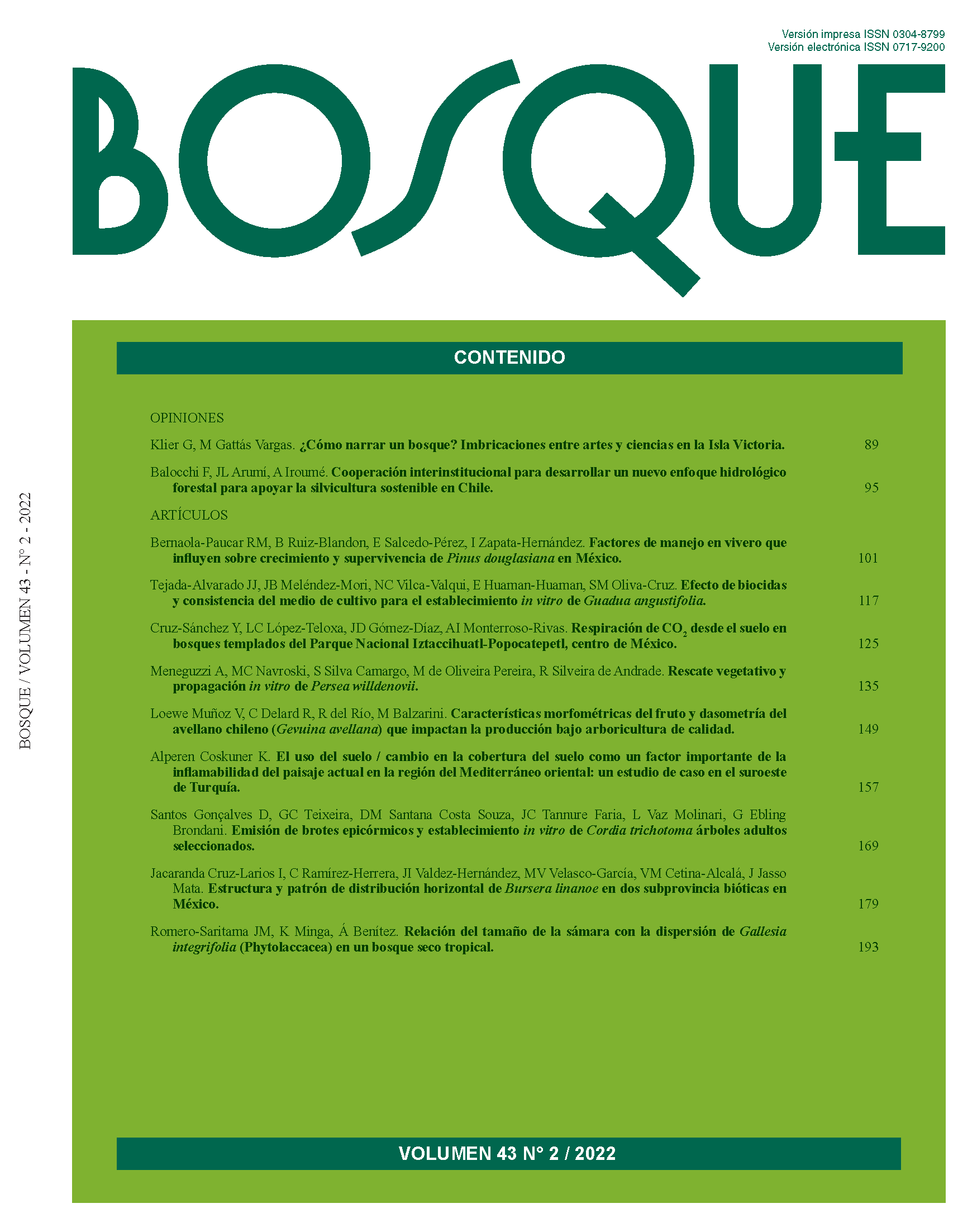Emission of epicormic shoots and in vitro establishment of Cordia trichotoma selected adult trees
Main Article Content
Abstract
Cordia trichotoma, popularly known in Brazil as ‘louro-pardo’, has numerous environmental and timber-related applications. This species is naturally propagated by seeds; however, this form of propagation results in restricted seedling production due to high genetic variability associated with a low degree of forest improvement. Thus, the cloning of selected adult trees is an alternative for producing high-quality plants. The aims of this work were to evaluate the emission of epicormic shoots from pruned branches and to define a protocol for the in vitro establishment of C. trichotoma selected adult trees. Propagules used in these experiments were derived from the selection of four C. trichotoma adult trees. The branches were placed in a greenhouse to induce epicormic shoots. Number of shoots according to the climatic season (autumn and spring) and shoot collection time were evaluated. Three sodium hypochlorite concentrations were evaluated for five minutes (C1 = 0.58 % active chlorine, C2 = 1.12 % active chlorine, and C3 = 2.12 % active chlorine) for in vitro establishment. Results indicated that the epicormic shoot technique could be considered viable for shoot emission of C. trichotoma, regardless of the climatic season (autumn or spring). Sodium hypochlorite solution applied for 5 minutes (1.12 % of active chlorine) was effective for the in vitro establishment of nodal segments from epicormic shoots, resulting in 61.3 % of established explants. These results are promising for the cloning of adult trees during the mature stage of development in the field without the need to cut the selected tree.

